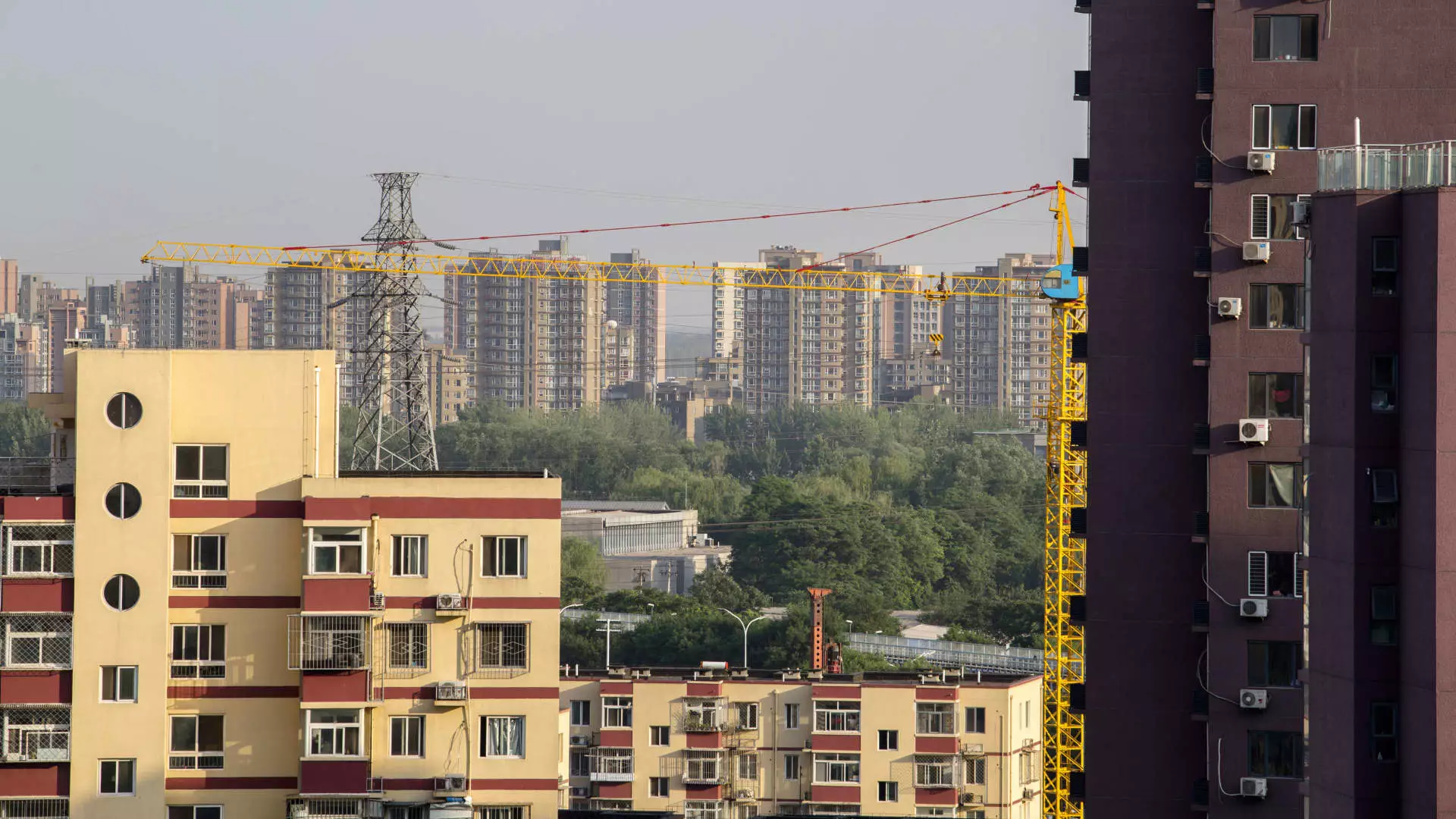The Chinese real estate market, a crucial pillar of the nation’s economy, has been grappling with challenges that have significantly dampened its growth prospects. Recently, Chinese property stocks observed a modest surge, prompting discussions among analysts and commentators about the effectiveness of recent monetary easing measures introduced by the People’s Bank of China (PBOC). While the measures aim to alleviate the financial strain on families and promote a recovery in the housing sector, a critical analysis of these policies reveals complex underlying issues that may thwart the intended effects.
In a pivotal press conference, Governor Pan Gongsheng of the People’s Bank of China announced a series of monetary easing policies. A notable move was the reduction of interest rates on existing personal mortgages by an average of 0.5 percentage points. Furthermore, the down-payment ratio for second homes has been decreased from 25% to 15%, which represents a significant alignment of borrowing conditions for first and second homes. This unification is expected to reduce household mortgage interest payments by approximately 150 billion yuan (around $21.25 billion) annually.
Despite initial reactions of enthusiasm from investors, illustrated by a spike in the Hang Seng Mainland Properties Index, experts express skepticism about the long-term consequences of these changes. The gains made by Hong Kong-listed real estate developers, including China Resources Land and Longfor Group, highlighted short-term investor optimism that may not translate into sustained growth.
One of the significant hurdles facing the Chinese real estate market is a persistent decline in property-related investment, which has dropped more than 10% in 2023 compared to the previous year. The aggressive measures taken by the PBOC, though substantial on paper, may not catalyze the revitalization anticipated by policymakers. As pointed out by William Wu, an analyst at Daiwa Capital Markets, reducing rates on existing loans is unlikely to stimulate demand for new home purchases. This viewpoint raises concerns about whether the current policies address the root causes of stagnation in the market.
A comprehensive recovery in the real estate sector may necessitate more than merely adjusting interest rates. As many economists underscore, the efficacy of financial assistance such as lower mortgage payments hinges on broader economic sentiment, particularly consumer confidence in job security and income stability. Without substantial improvements in these areas, high-value investments like home buying may continue to be sidelined.
Bruce Pang, the chief economist at JLL for Greater China, laid out a crucial observation: there exists an urgent need for a multi-faceted approach to revitalizing the market. A singular focus on monetary easing may fall short if coupled with a lack of effective support for developers. Comprehensive strategies that integrate financial relief with infrastructure investment and construction activities are paramount. Local governments, already under financial constraints, must work alongside national policies to ensure the availability of new housing projects and support struggling developers.
Furthermore, the proposal for homeowners to renegotiate loan terms or refinance with alternate banks marks a shift in policy that could empower consumers. Still, the implementation timeline remains critical as potential relief in terms of renegotiation should preferably occur before the volatile winter months.
The recent monetary easing measures introduced by the PBOC can be viewed as a step in the right direction towards supporting the beleaguered Chinese real estate market. Yet, to achieve a meaningful and lasting impact, it is imperative that these measures are coupled with a broader strategy that incorporates various other factors. Fostering consumer confidence, bolstering developer stability, and investing in supportive infrastructure will be essential. Without a holistic and robust framework, the path to recovery remains uncertain and potentially fraught with challenges. Therefore, as the market continues to evolve, vigilant monitoring and adaptive policy frameworks will be required to ensure that the fortunes of the Chinese real estate sector improve sustainably.

Leave a Reply